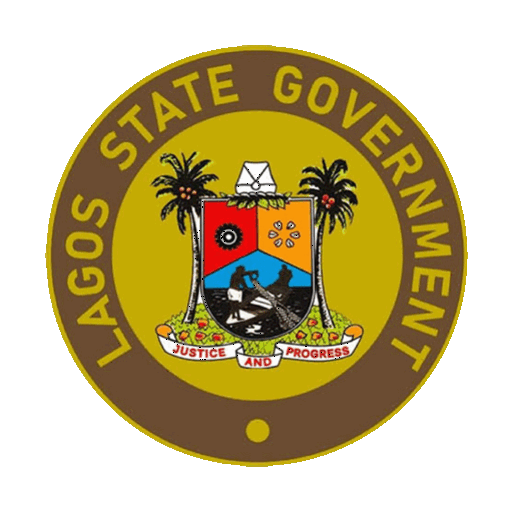
GIVO is Connecting Circularity with Technology. Check out how they’re supporting circular businesses.
Victor Boyle-Komolafe’s startup, GIVO, is one of the few startups dedicated to eradicating plastic waste and recycling it into a sustainable material. GIVO currently operates both in Nigeria and Liberia.
He spoke about how the urgency of climate change and environmental degradation motivated him to focus on supporting eco-friendly businesses through technology.
1. Can you provide an overview of your company’s mission and values regarding environmental sustainability?
Hello, I am Victor Boyle-Komolafe, the CEO and Founder of GIVO. I am a chartered accountant with experience in circularity and sustainable businesses. GIVO is a climate tech start-up operating in Nigeria and Liberia, leveraging technology to aid climate adaptation by eliminating plastic waste within communities. Our mission is to create scalable, efficient infrastructure for plastic recycling that improves the quality of life, environment, and economic opportunities in communities across West Africa. Our core values revolve around sustainability, community empowerment, and environmental stewardship.
2. What motivated your company to focus on supporting eco-friendly businesses?
The urgency of climate change and environmental degradation motivated us to focus on supporting eco-friendly businesses. Our project addresses Nigeria’s critical waste management issue, where 70% of waste is inadequately disposed of, polluting landfills and waterways, and contributing to environmental degradation, health risks, and economic setbacks. Recognizing the significant impact of waste management on the environment, we aimed to create sustainable solutions that benefit communities and the planet by promoting circular practices that reduce waste and enhance resource efficiency.
3. How does your company define a “circular business” or what criteria do you use to identify potential partners?
We define a circular business as one that prioritizes resource efficiency, waste reduction, and the continuous use of materials. Criteria for identifying potential partners include a commitment to sustainable practices, a focus on reducing environmental impact, and the ability to innovate within the circular economy framework. We look for businesses that align with our mission of promoting environmental sustainability and community empowerment.
4. Can you share examples of circular businesses your company has supported in the past? What were the outcomes or impacts of these processes?
We have supported several circular businesses, including plastic recycling initiatives and eco-friendly product manufacturers. Through the GIVO-Warwick Project, we partnered with local recycling businesses to process and repurpose over 826,000 kg of plastic waste, preventing 7.5 million kilograms of CO2 emissions to date. These collaborations significantly reduced landfill waste, created cleaner environments, generated jobs, and produced sustainable consumer goods. Additionally, in collaboration with a shipping company, we sustainably collected and disposed of 888 kg of hard-to-recycle plastic waste. We also collaborated with a tyre manufacturer to aid in their efforts in removing over 3 tons of recyclable material, mitigating environmental hazards from improper disposal methods such as burning and dumping.
5. What specific resources does your company provide to circular businesses? (e.g., funding, mentorship, networking opportunities, marketing support)
GIVO provides a comprehensive range of resources to support circular businesses, including networking opportunities to connect businesses to like-minded organizations. We offer our expertise in waste management to optimize recycling efforts, while our GIVO Technology Platform enhances waste management operations and transparency. Additionally, we integrate clean and sustainable energy solutions to further support the sustainability goals of circular businesses.
6. How does your company measure the success or effectiveness of its support for circular businesses?
We measure success through various key performance indicators (KPIs) such as the amount of waste diverted from landfills, CO2 emissions avoided, jobs created, and the economic impact on the communities we serve. We also track the growth and sustainability of the businesses we support, assessing their long-term viability and contribution to the circular economy.
7. In what ways does your company collaborate with circular businesses to drive sustainability in your industry?
We collaborate with circular businesses by integrating our solutions into their value chain, sharing best practices, and co-developing innovative products and services. Our GIVO Technology Platform facilitates real-time monitoring and data sharing, enabling efficient resource management and transparency. These collaborations help drive industry-wide sustainability and foster a culture of continuous improvement.
8. How do you ensure that the circular businesses you support align with your company’s broader goals and values?
We ensure alignment through our selection process which evaluates potential partners based on their commitment to sustainability, innovation, and community impact. Continuous dialogue and collaboration help maintain alignment, ensuring that all supported businesses share our vision and values.
9. Can you discuss any challenges or obstacles your company has faced in supporting circular businesses and how you’ve addressed them?
One of the main challenges has been securing consistent funding for circular initiatives. We have addressed this by diversifying our funding sources, including grants, partnerships, and impact investments. Another challenge is changing consumer behavior and business practices to adopt circular models. We tackle this through education, awareness campaigns, and demonstrating the economic and environmental benefits of circular practices.
10. Looking to the future, what are your company’s goals or aspirations for its involvement with eco-friendly businesses?
We aim to establish 200 GIVO centers across sub-Saharan Africa, led by youth and women franchises. This will prevent 400,000 metric tons of CO2 emissions and divert 30,000 metric tons of waste from landfills annually, significantly reducing methane emissions. Our goals include expanding our circular business network, increasing waste diversion and resource recovery, and continuously innovating eco-friendly solutions. We also plan to implement carbon and plastic credit initiatives and an extended producer responsibility program. We aspire to lead the circular economy, driving significant environmental and social change while fostering sustainable growth for all stakeholders.


